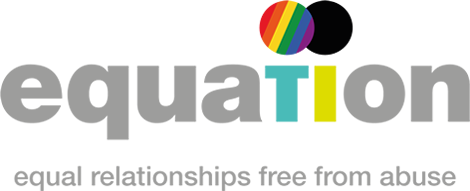Help a Friend
Don’t lose a friend to domestic abuse or sexual violence.
Learn how to Spot It
Learn how to Support
Learn how to #HelpAFriend
Good friends are everything. But sometimes our closest friends can be suffering in silence.
With 1 in 3 women experiencing domestic abuse or sexual violence, as well as many men, trans and non-binary gendered people, it is highly possible someone we care about may need our support. Supporting a friend through abuse can be tough for you as well as them.
But don’t worry, we’re here to help.
Do you need help?
Local domestic abuse services are ready to support you and your friend. Calling a helpline is not the same as reporting to the police, and support is provided confidentially.
First things first, learn the right things to say when someone tells you about their experience of abuse.
If someone tells you about their experience of domestic abuse or sexual violence, it can be hard to know the right thing to say. The good news is that it’s actually quite simple with only four things to remember.
"I'm sorry to hear that"
Show your friend you believe them, and that you care. You might be shocked by the things you’ve been told, especially if you know the person hurting them. But remember, anyone can abuse or be abused, no matter how they seem on the face of it.
Why it’s important to say
Your friend is being bullied and hurt, so they probably feel low. You could be the first person they’ve ever told, and they might feel alone and scared. If you are caring, your friend knows that at least one person has their best interests at heart. Your positive response will support them to cope with the situation.
“Thank you for telling me”
Let your friend know they’ve made a brave and positive decision to talk to someone. Don’t push for details unless your friend wants to tell you. Be trustworthy: reassure them you won’t share information about the abuse with anyone else without their permission, unless it’s an emergency.
Why it’s important to say
There are many reasons why people experiencing abuse don’t feel able to speak out about it. A big one is fear of being judged or not believed. By reassuring your friend they’re doing the right thing, you’ll help reduce that fear, and build their confidence to ask for further help from others.
“It’s not your fault”
Be very clear: tell your friend that what’s happening to them is wrong and they’re not to blame. Nothing your friend has done or said makes it okay to be abused. If the abuser drinks or is using drugs, has stress, depression, or anger problems, or had a bad childhood, this does not justify their behavior. Abuse is the responsibility of the abuser.
Why it’s important to say
Often a person who is being abusive blames the victim or makes excuses, so your friend could fear what others think or blame themselves. Their self-esteem is probably quite low as a result of abuse. By telling your friend they’ve done nothing wrong, you’ll help to reduce their anxiety and also build their self-confidence to get further help.
“How can I help you?”
Ask your friend what they need. Let them know they can contact the local domestic abuse helpline to talk about their situation and get free, confidential advice. Help them store the number somewhere safe: 0808 800 0340 for women, 0115 960 5556 for men. Do not pressure them to leave. Try and be understanding if they’re not ready and let them know you’ll be there for them, whatever they decide.
Why it’s important to say
Your friend needs to know that help is available, but they might not be ready to take action. They may feel stressed, afraid, and exhausted. They might still love their partner or believe they’ll change. If you pressure your friend to do anything they don’t want to then they’ll only feel worse, and might pull away from all support.
If they can be in control of their own decisions, they’ll be more likely to access help and make changes that last.
Worried about your friends relationship?
Friends can tell when something isn’t right but trusting your instincts isn’t easy. Learn how to spot the signs and help a friend in an abusive relationship.
Keeping each other safe on a night out
Date rape is never the fault of the person targeted or their friends but knowing the signs can help keep our friends and ourselves safe.
About the Help a Friend campaign
Help a Friend is an Equation campaign that first launched in 2016. It has been run in Nottingham City and county in March each year to coincide with International Women’s Day.
In March 2022 we added new content to raise awareness of date rape with many thanks to OPCC Caroline Henry for the funding and support to make this possible.
Order resources
Our Help a Friend campaign posters raise awareness of the warning signs of domestic abuse.
Make a donation
With your help we could do even more with our campaigns such as running them more times a year, reaching more people, and refreshing content to keep it current.
Campaign with us
We campaign in Nottingham and Nottinghamshire to raise awareness of domestic abuse, gender inequality and signpost survivors to safety and support.
How you can help
No matter how much time, money or resources you can afford to give, your support will make a difference.
£10
Give monthly
Could pay for four children
to take part in our early intervention projects
£30
Give once
Could pay for one primary school child to receive our healthy relationship education program
Support equation
Check out the other ways you can support us
